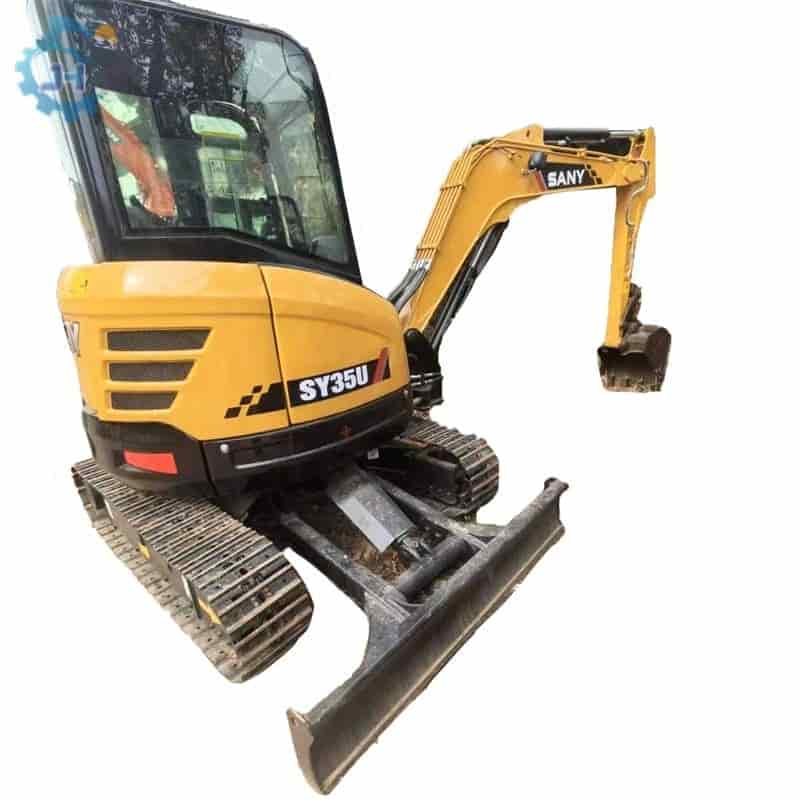What are the key factors to consider when purchasing a used excavator?
Release time: 2025-04-16
Choosing the right used excavator is an important step to ensure a return on investment and reduce subsequent repair costs.
Clarify the needs
Working environment: Determine the environment in which the second-hand excavator is used, such as urban construction, mining, farmland, etc. Different working environments require different types of excavators.
Work type and load: Confirm whether the excavator is used for heavy load, high-efficiency operation, or daily light load operation? Understand the load requirements and operation methods, such as excavation, bulldozing, loading and unloading, etc.
Brand and model selection
Brand: Choosing well-known brands, such as Caterpillar, Komatsu, Volvo, Hitachi, Doosan, etc., can reduce the risk of equipment failure, and equipment from big brands generally has better value retention and after-sales service.
Model matching needs: Choose the appropriate model according to your type of operation. If it is a large-scale earthwork project, you can choose a large-tonnage excavator; in a small space or delicate working environment, you can choose a small used excavator equipment.
Working hours
Low working hours: The working hours of a used excavator is a key factor. Generally speaking, the lower the working hours of a used excavator, the less wear and tear the machine has and the longer its service life. It is more ideal to choose equipment with lower working hours.
Suitable hours range: Generally speaking, used equipment with working hours between 4,000 and 6,000 hours will be more suitable. Equipment below this range may be used less and the risk is relatively low.
Equipment maintenance and servicing history
Maintenance records: Understand the equipment maintenance records. Regularly maintained machines usually perform better and have a lower risk of failure. Check whether the equipment has replaced important parts such as oil and filters on time.
Repair history: Ask whether the equipment has had major failures and understand the repair status, especially whether there are replacement records for key parts such as the engine and hydraulic system.
Check the appearance and structure of the machine
Appearance inspection: Appearance damage may reflect the use of the equipment. Check whether the used excavator machine has serious collision marks, cracks, oil stains, rust, etc. Excessive appearance damage may mean that the equipment is often subjected to a harsh use environment.
Tracks and chassis: The degree of wear of the tracks directly affects the stability and service life of the equipment. Check the wear of the tracks and whether the chassis has cracks or severe deformation.
Check the hydraulic system and engine
Hydraulic system: The hydraulic system is the most important part of the excavator. Check whether the hydraulic pump, valve, cylinder, etc. have leakage or abnormality. The health of the hydraulic system directly determines the working efficiency and operating stability of the equipment.
Engine: Check whether the engine starts smoothly, whether there is any abnormal noise, whether it is easy to start, and whether there is excessive emission during operation. Check the engine’s fuel consumption and whether there is any oil leakage.
Check after-sales service and warranty
Confirm whether the equipment has effective after-sales service, and whether the dealer or manufacturer provides warranty period, extended warranty and other services to ensure timely support during later use.
Understand whether there is convenience for after-sales maintenance, especially whether accessories are easy to obtain and whether there is good technical support.
Price comparison and budget
Market situation: Before buying, you can learn about the market price and see the approximate price of equipment of similar models, working hours and years. This can help you judge whether the price is reasonable.
Negotiable space: You can make reasonable negotiations based on factors such as the use, appearance, working hours of the equipment to avoid paying too high a price.
Purchasing channels
Formal channels: Choose a reputable used excavator equipment supplier or dealer to ensure the legal source and quality assurance of the equipment. Purchasing through formal channels can also provide better after-sales service.
Auctions and used markets: If you purchase through auctions or other used market channels, be sure to conduct a comprehensive inspection and understand the details of the equipment as much as possible.
Through these steps, you can effectively reduce the risk of purchasing a used excavator and increase the return on investment.
Anhui Junhe Engineering Machinery provides professional used excavator equipment, including brands such as Komatsu, Carter, Hitachi, Kobelco, Doosan, Sany, XCMG, Volvo, etc. We will assist you in confirming the machine model. Before delivery, we will clean the excavator, spray rust prevention, repaint, and refurbish the external equipment. We will also provide professional guidance and training, maintenance technical support and consumables accessories to ensure the normal operation of the equipment.

